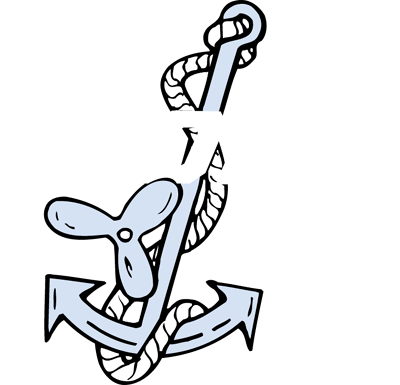As you are aware, the National Transportation Safety Board (NTSB) is the government agency responsible for investigating transportation accidents, determining their probable cause, and then making recommendations to prevent these types of accidents from reoccurring. While the NTSB investigates major marine casualties - working closely with the United States Coast Guard (USCG) - it uses its discretion as to which maritime accidents to investigate. The USCG, on the other hand, will also carry out marine casualty investigations that the NTSB decides not to pursue.
When the owner's interests are at odds with a shipboard employee, it may become necessary for the employee to obtain separate counsel.
My Employer Has Marine Casualty Insurance,
So I’m Not Worried
When a maritime casualty occurs, the vessel owner's liability insurance carrier will usually appoint maritime counsel immediately to defend the interests of the vessel, her owner, and any insureds under the policy against potential claims for loss, injury and third-party property damage. In many cases, the vessel owner’s counsel may also work to defend the involved vessel’s captain…but not always.
I’m Covered Under My Employer’s Policy, Right?
Not necessarily. Maritime attorney James E. Mercante and his associate Kristin E. Poling shed some light on this question in their Tulane Maritime Law Journal article “Soup to Nuts: Navigating NTSB Marine Casualty Investigations” by stating:
“Often times, the vessel owner’s attorney will act on behalf of the vessel captain in an investigation; however, there can come a point when the owner's defense against liability is in conflict with that of an officer. This typically arises where a vessel owner seeks to limit its liability under the Federal Limitation of Liability Act by attempting to establish that they had no "privity" or "knowledge" as to the cause of the accident. When the owner's interests are at odds with a shipboard employee, it may become necessary for the employee to obtain separate counsel. Specifically, when the investigation or circumstances suggest that there is a chance for criminal or other civil liability or penalties directly against an officer (i.e., a Coast Guard license Suspension or Revocation (SAR) action), the vessel owner's insurer may not have an obligation to protect or indemnify that officer. This will generate an insurance coverage issue to be evaluated under the terms of the P&I policy. However, the ship's officer may have a separate policy of insurance issued by a "license" insurer such as the Merchant Officers Protection Syndicate (MOPS). A MOPS policy is specifically designed to pay the cost of attorneys' fees to defend a licensed officer (i.e., engineer, captain, mate, pilot) in a Coast Guard casualty investigation, including SAR proceedings, or in an NTSB investigation. Importantly, a MOPS (or similar) policy may also provide an officer coverage for legal defense costs in a related civil litigation arising out of the casualty if personally sued and/or the officer incurs lost wages for any time out of work when a Coast Guard license is suspended.”
With the seemingly astronomical cost of maritime legal representation, and in light of recent maritime casualties, it behooves professional mariners to review whether their current situation will protect their license, livelihood and professional reputation, in the event they are involved in a marine casualty.
Since 1935, MOPS has protected the licenses and livelihoods of more than 80,000 deck and engineering officers, state and federal pilots and certified tankermen.
We cover USCG licensed officers operating aboard vessels of any size in every sector of the maritime industry. If you want a quote, give us a ring at 800-782-8902, ext. 3608 or 3302. Or fill out our online form and we'll email you a quote.
Inset Photo: Courtesy of USCG. The appearance of U.S. Department of Defense (DoD) visual information does not imply or constitute DoD endorsement.


